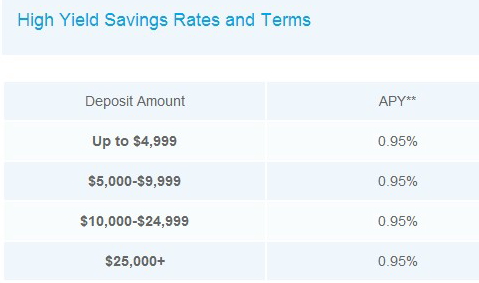Once the CWALT is not an event to that particular legal actions, the heading methods of their certificate people aren’t safely before it Legal; though they were, not, plaintiff’s claim do nevertheless fail, because their unique contentions from CWALT’s decreased authorization is conclusory and you may with out factual service.
Its undeniable one CWALT is not an effective “people unknown” in order to plaintiff; therefore, CWALT isnt utilized in plaintiff’s greater description from unnamed defendants.
While it is likely that defendants may have failed to follow just the right foreclosure actions, its undisputed that defendants encountered the directly to foreclose mainly based abreast of plaintiff’s standard in financing

Plaintiff’s 4th claim tries a decree from this Legal your debated home is 100 % free and you will clear of the encumbrances, for instance the Deed out-of Believe. Plaintiff’s amended hushed name allege are just like that claim in their own early in the day problem, except that plaintiff contributes a section saying that defendants’ appeal “for the plaintiff’s real estate is actually instead quality as the plaintiff’s note are separated from plaintiff’s deed out of believe by defendants, tranched, and you can offered so you’re able to divergent investors.” SAC forty-two.
With the rest of plaintiff’s declaratory view installment loans in Maine claim are contingent upon new end you to definitely one mortgage into the MERS experience unenforceable
The factual allegations supporting the complaint are once again conclusory. With the exception of the additional paragraph, the entirety of plaintiffs fourth claim states that “[p]laintiff is the owner in possession of real property . . . [defendants are] not in possession of plaintiff’s real property . . . [defendants] claim a right [which] . is adverse to plaintiff’s interest.” Id. at 37-43. Accordingly, plaintiff continues to merely allege the elements of a claim to quiet title. Come across Or. Rev. Stat. (“Any person claiming an interest or estate in real property not in the actual possession of another may maintain a suit in equity against another who claims an adverse interest”).
More importantly, however, plaintiff’s claim fails as a matter of law. To secure a judgment quieting title, plaintiff must establish that she has “a substantial interest in, or claim to, the disputed property and that [her] title is superior to that of defendants.” Coussens v. Stevens, 200 Or.App. 165, 171, 113 P.3d 952 (2005) (citing Or. Rev. Stat. ; and Faw v. Larson, 274 Or. 643, 646, 548 P.2d 495 (1976)). While this standard “does not require the plaintiff’s title to be above reproach, it does require that [plaintiff] prevail on the strength of [her] own title as opposed to the weaknesses of defendants’ title.” Id., (citations and internal quotations omitted).
As stated throughout the Thoughts, plaintiff struggles to claim the fresh new supremacy from her own title because she no more enjoys one ownership need for this new debated property:
a person may bring an equitable quiet title action to obtain resolution of a dispute relating to adverse or conflicting claims to real property. Spears v. Dizick, 235 Or.App. 594, 598, 234 P.3d 1037 (2010). Thus, because plaintiff is unable to cure the default, she no longer has a valid claim for entitlement to the property. As such, there are no conflicting claims to the property for this Court to resolve.
Plaintiff’s second revised criticism alleges zero the fresh things relating to their own capability to dump this new standard otherwise defendants’ right to foreclose; therefore, plaintiff will not give a factor where this woman is entitled in order to quiet title. Alternatively, once the plaintiff is lawfully inside the standard, she not any longer has a possession interest in the latest debated assets. Thus, the reality that defendants presumably impermissibly broke up the brand new Notice on Deed off Believe doesn’t improve plaintiff’s claim. Hence, defendants’ action so you’re able to write off is provided in regard to plaintiff’s next allege.


